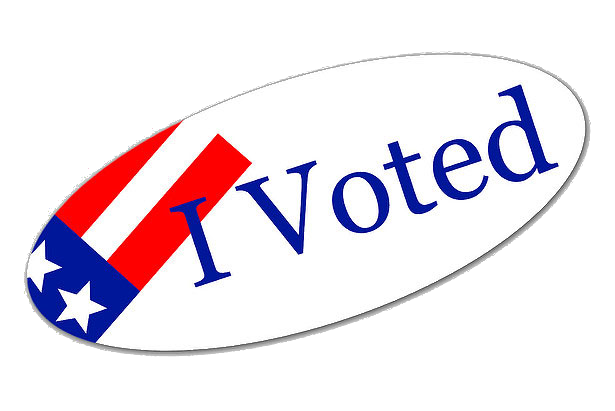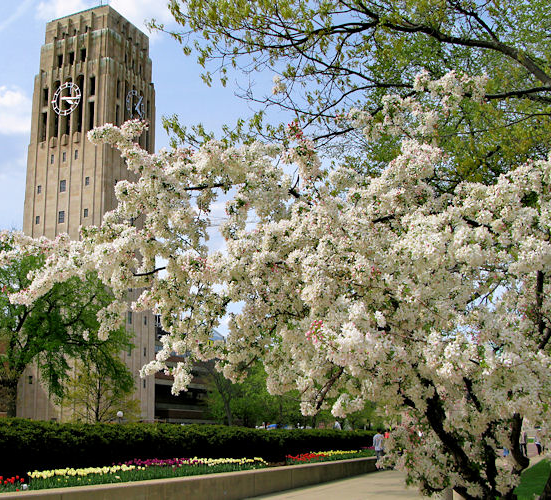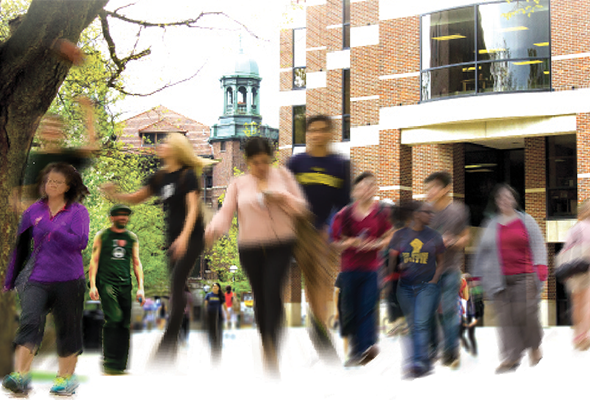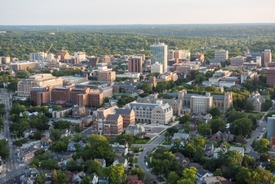 Teaching and learning are never entirely void of politics, but this fall—as a new U.S. president is elected mid-semester—the tension, drama, and controversy of the political moment will no doubt be especially palpable in classrooms across the university.
Teaching and learning are never entirely void of politics, but this fall—as a new U.S. president is elected mid-semester—the tension, drama, and controversy of the political moment will no doubt be especially palpable in classrooms across the university.
Instructors in every discipline have cause to prepare thoughtfully for the impact of this election season on their students, their curriculum, their classroom climate, and themselves. Maintaining a commitment to inclusive teaching during an election that is itself fraught with hostility around questions of diversity requires a renewed insistence on the free and fair exchange of ideas. To support this commitment, we offer the following three questions instructors might ask themselves while preparing to teach.
1. What role does my discipline play in the issues raised by this election?
Our students need to be able to critically evaluate the platforms of candidates and elected leaders. Every discipline is somehow implicated in these agendas, whether the topic is immigration and the rights of refugees; fracking, genetically modified foods, or climate change; education and health care; history, race, and the Black Lives Matter movement; gender (in)equality and LGBTQ rights; or international relations and the “war on terror.”
Instructors can ask:
- Which topics within my discipline might require special attention in light of the election?
- How might the candidate platforms be a resource for teaching and learning these topics?
- What are the diverse perspectives and voices that characterize my field related to these topics, and how do I maintain some balance in presenting them?
Many U-M students will vote in this election. By asking questions such as those above, we as instructors can help them engage with the data and skills they need to weigh the issues and make informed decisions.
2. How might my courses allow students to practice some of the fundamental, particular skills required by democracy?
In addition to the content of our individual disciplines and courses, there are overarching democratic skills that students can develop in courses across the University. These include:
 Is CRLT still available to support U-M teachers during the summer? Indeed, we are! If you're teaching a course in one of these terms, you can request a Midterm Student Feedback session led by one of our consultants. CRLT staff are also available to discuss the student ratings from past courses or to consult on course design and planning as you look ahead to the fall. We're happy to hear from you at any time of year!
Is CRLT still available to support U-M teachers during the summer? Indeed, we are! If you're teaching a course in one of these terms, you can request a Midterm Student Feedback session led by one of our consultants. CRLT staff are also available to discuss the student ratings from past courses or to consult on course design and planning as you look ahead to the fall. We're happy to hear from you at any time of year!


 GSIs across campus are being recognized for their excellent teaching. CRLT warmly congratulates winners of Rackham's Outstanding GSI Award and the College of Engineering's Richard and Eleanor Towner Prize for Outstanding GSIs. Selected from large pools of nominees, all of these instructors have demonstrated extraordinary commitment, creativity, and overall excellence in their teaching.
GSIs across campus are being recognized for their excellent teaching. CRLT warmly congratulates winners of Rackham's Outstanding GSI Award and the College of Engineering's Richard and Eleanor Towner Prize for Outstanding GSIs. Selected from large pools of nominees, all of these instructors have demonstrated extraordinary commitment, creativity, and overall excellence in their teaching. In a recent blog post, we addressed challenges and opportunities in
In a recent blog post, we addressed challenges and opportunities in 
 Teaching and learning are never entirely void of politics, but this fall—as a new U.S. president is elected mid-semester—the tension, drama, and controversy of the political moment will no doubt be especially palpable in classrooms across the university.
Teaching and learning are never entirely void of politics, but this fall—as a new U.S. president is elected mid-semester—the tension, drama, and controversy of the political moment will no doubt be especially palpable in classrooms across the university.

